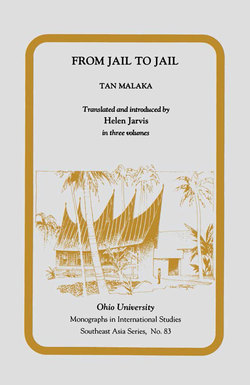Читать книгу From Jail to Jail - Tan Malaka - Страница 16
На сайте Литреса книга снята с продажи.
ОглавлениеChapter 2
HUMAN RIGHTS
[10] Law as it relates to human rights covers an extremely wide area.1 This is not the place, nor is it my intention here, to analyze all human rights one by one. What I shall touch on is only that part especially concerned with regulations for the self-preservation of members of society.
In order to be aware of the place held by the right to self-preservation in law, it is well to have a quick view of the whole body of law relating to human rights. This is not a difficult task if we follow the method used above in viewing the natural world, separating the positive from the negative, what attracts from what repels.
There are two great forces that move the soul of every living thing, including human beings. The first is the will to live, and the second is the will not to die. If we term the first will positive, then the second clearly is negative. If human will generally attracts and pulls towards the first, then it rejects the second. In the concrete, everyday sense, the first force serves to find the means to live—food, drink, clothing, accommodation, and so forth—while the second serves to ward off the dangers of sickness and hunger.
[11] The struggle for rights means the struggle to seize these positive and negative rights, as embodied in the Magna Carta and The Rights of Men in Anglo-Saxon law;2 in Les Droits des Hommes, the basis of French law; and finally in the right to work in Soviet Russia. The struggles to secure these rights in England, America, France, and Russia were not individual struggles, but group ones, undertaken to avoid danger and to secure well-being for the group itself.3 These struggles followed the outline sketched above—to secure the positive and reject the negative.
We would not be able to see the wood for the trees if we were to examine every right won in the victorious struggles of the bourgeoisie against the aristocracy in France and England, of the American nationalists against the British, and of the proletariat against the aristocracy and the bourgeoisie in Russia. It is sufficient for us to analyze the motto of the French revolution: liberty, equality, and fraternity, a slogan that can still move the souls of oppressed humanity.
In essence the positive aspect of the call for liberty encompassed freedom to make a living-freedom to farm, to trade, or to establish a business; freedom to possess, sell, or buy the products of such labor; freedom to elect representatives to regional and central political bodies; and, finally, freedom to hold a belief and to profess and defend it with the tongue and the pen. On the other hand, its negative meaning was freedom from the bonds of feudalism with regard to earning a living and freedom from arbitrary actions by the police, the royal court, and the nobility.
Equality was pursued by the French bourgeoisie so that these rights, in both their positive and negative aspects, could be possessed by all citizens of France: the aristocracy, the priesthood, the bourgeoisie, and even the industrial and rural proletariat.
Fraternity, in essence, was the call for equal treatment among the regions of France in regard to the import and export of goods—that is, in customs duties. One region should not be able to impose customs and duties against any other region within the state of France. It would be sufficient to pay duties in any one region of unified France and they should not, then, be levied again in other regions through which the goods might pass: this was the meaning of unity and fraternity.
[12] Perhaps it was the specter of fascism and nazism or perhaps it was the negative aspects of capitalism for the proletariat that made the late President Roosevelt formulate two of his four freedoms as freedom of fear [sic] and freedom from hunger. Actually they can be formulated as negative and positive freedoms: the first negatively as freedom from fear (arrest), and the second positively as the right to be given work by the state.
But the capitalists do not want the positive. They do not want to guarantee a livelihood to each citizen. More to the point, shorter, and more penetrating was the slogan of the Bolshevik party at the time of the revolution in 1917. The positive was the demand for bread and land. The negative was the demand for peace, that is, freedom from external attacks, from danger.
These two slogans concerning conditions of life illuminate the different positions of these two opposing groups. The slogan of the bourgeoisie, with Roosevelt as its spokesman, has a negative character (repulsion)—to reject hunger. On the contrary, the slogan of the Bolsheviks, with Lenin as their spokesman, has a positive character—to demand the most important means of livelihood: land and bread.
